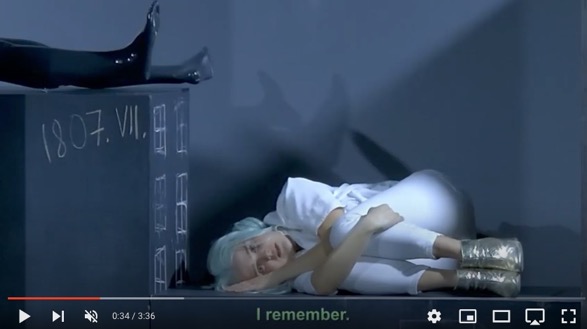
Education as a safe context for artistic experimentation
A solid technical and artistic vocal training is the quintessential building ground for a wide variety of vocal practices. During our Porto ISP, when asked about the challenges of singing contemporary compositions, the American Singer Claron McFadden - also known for her recordings of Baroque music - replied promptly: "Singing is singing." She stresses the importance of a very solid base training. After that, everything is possible.
ISP Porto - an interview of Claron McFadden by Myriam Pascuale and Peter Missotten:
Claron McFadden has a very eclectic career. She grew up in the US and moved to the Netherlands. She came from early music (which was considered as a niche practice) when she was asked for a contemporary piece. Singers were scared to do contemporary music. So she also jumped into that niche. How does she manage these different worlds? Claron says it is about speaking different languages. It is approaching a different part of your brain. The vocal technique she trained made her use the voice in a healthy way. Singing modern music is not that different than singing baroque music: its all singing. But you need to do it in a healthy way.
• Don’t scare away from experimentation as long as it is secured by a strong technique.
Contemporary music isn't an infectious disease destroying voices in a snap. As long as students have a strong base technique, and are aware of (and comfortable with) their limits, experimenting freely with new contemporary vocal techniques, only enriches the artistic range of the student. Practicing with new technologies: amplified and electronically manipulated voice techniques, live video projections, computer generated backgrounds, compositions generated by Artificial Intelligence… all these experiments can lead to a unique expertise and style for the student. New intermedial opera practices can emerge from these experiments. Thus improving the chances of entering a professional career.
As most opera singers in practice meander between old repertoire and contemporary creation, this space of experimentation is beneficial for every aspiring opera singer. It helps them to define their unique approach to their artistic career.
• Put students at the steering wheel of their opera education and practice.
Both at the 'Preview' Intensive Study Program in Maastricht, as at the last online ISP in Porto, students performed small operas of their own creation. The quality of these was quite encouraging. When students are left at the steering wheel of their artistic education, they don't end up against a tree after all. It generates enthousiasme and a positive attitude towards experimentation.
For the online ISP in Porto, students created three minutes online operas, created online - thanks to Covid19 - sometimes by students in different countries who never met for this project. It showed off at least their familiarity with digital tools. The possibility of creating an opera across the borders of countries, opens up a whole range of new possibilities, and widens the view of these students.
Education should open op to all the influences from the professional practice. Conservatory education sometimes tends to be more conservative than the market itself. Tight budgets sometimes are said to limit the scope of digital experimentation. But this as well is a conservative view. With the power of laptops and smartphones, a world of digital possibilities opens up, often at no extra cost at all. Especially since Covid19, the internet showed us the best of opera in the world, sometimes for free. This could lead to a diversification of the understanding of the opera.
Student - centered education
the focus of the pedagogical discourse should shift from the teacher to the student, from the musical product to musical processes and from teaching to learning; increasing emphasis on developing the complete musician.
Student as a reflective practitioner
The rapidly changing environment makes it difficult to prepare instrumental/vocal education students with prescriptive instructions for all occasions and contexts. Instead, instrumental/vocal teacher education programmes should help students to learn to become reflective practitioners who are able to adapt their teaching according to the changing circumstances and needs of different pupils.
Student’s autonomy
There is a greater emphasis on more creative approaches, on developing student autonomy, on teaching students how to learn. Learning is seen in terms of developing ways of musical thinking rather than merely the acquisition of specific skills. Generally, the student’s musical experience is no longer limited to the individual lesson with the individual teacher, and many young instrumentalists engage in a range of group learning contexts related to their instrument and to developing their general musicianship. (...) The teacher is regarded as facilitator and guide rather than as ‘instructor’.
“Instrumental and vocal teacher education: European perspectives polifonia working group for instrumental and vocal music teacher training” AEC Publications 2010, Handbook
https://aec-music.eu/publication/aec-handbook-instrumental-vocal-teacher-education-european- perspectives/

